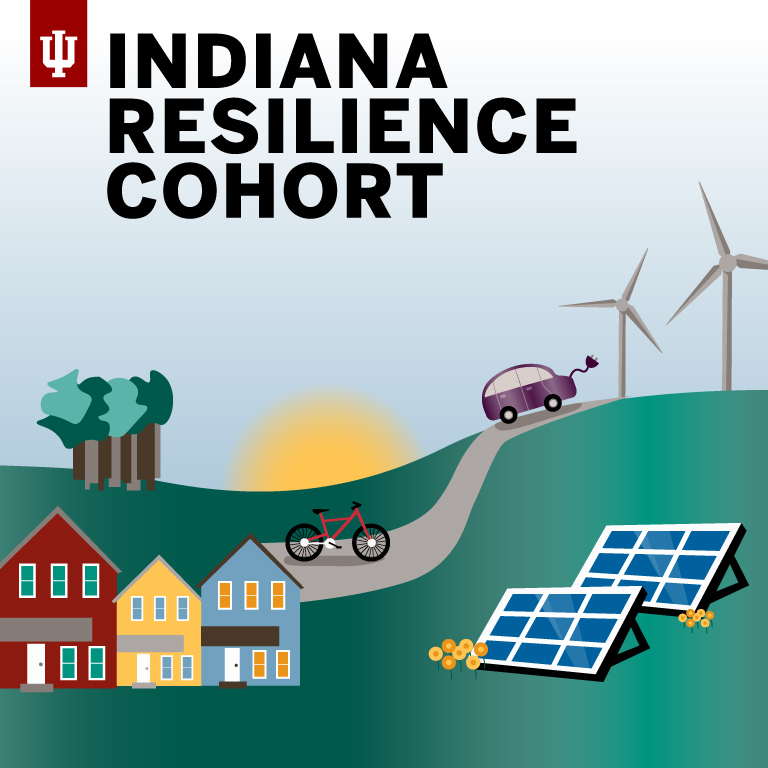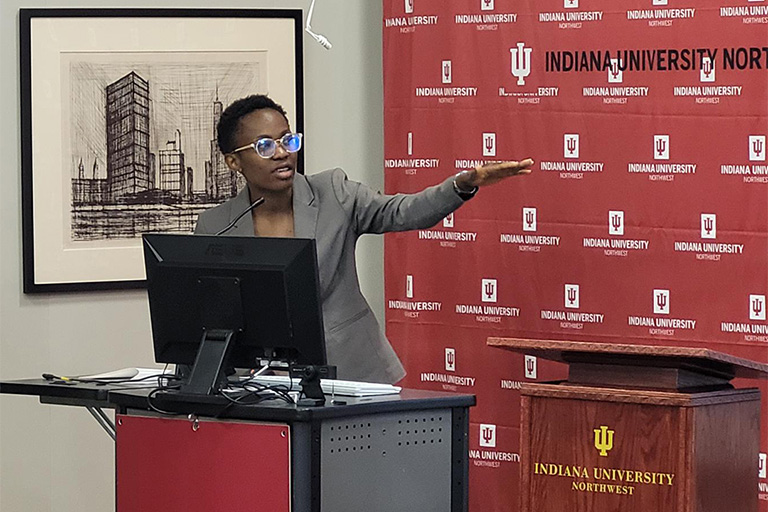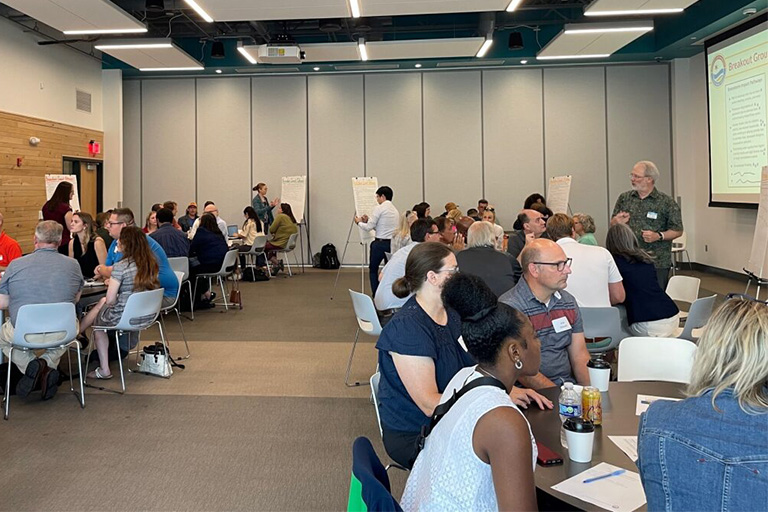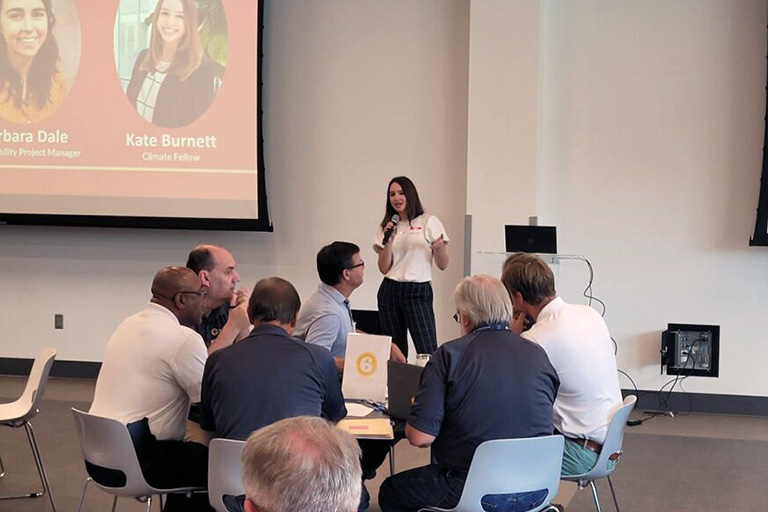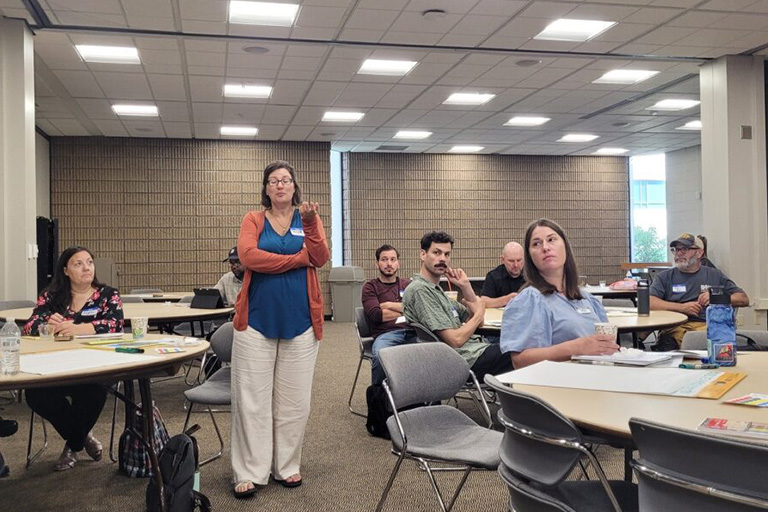During a summer of extreme heat and record high global temperatures, six Indiana local governments held community workshops to better understand their vulnerabilities to climate change and make plans to reduce risks.
Part of a year-long climate resilience planning effort led by Indiana University’s Environmental Resilience Institute (ERI), the workshops served as a forum to gather input from residents about the risks posed by climate change impacts, such as heat waves and flooding, being experienced with increasing frequency. Participants included Bloomington, Carmel, Columbus, Gary, New Albany, and South Bend, with Monroe County and Terre Haute planning workshops later this year.
“While local governments in Indiana and elsewhere continue to pursue strategies to reduce greenhouse gas emissions, they must also grapple with the unavoidable climate impacts that are being experienced today and are poised to become worse in the coming decades,” said Therese Dorau, ERI assistant director for policy and implementation. “Part of that process is listening to the concerns and observations of community members with a broad range of expertise and perspectives.”
McKinney Climate Fellows, IU graduate and undergraduate students interested in sustainability career experiences, worked with each Resilience Cohort participant over the summer and helped organize the meetings. In support of the workshops, fellows gathered data, conducted community surveys, recruited workshop attendees, and presented on local climate trends.
“It was about educating people and helping people see how climate change is specifically impacting their city,” said Isioma Nwayor, a PhD candidate in geography at IU Bloomington who helped organize and presented at the City of Gary’s workshop. “Compared to a few years ago, people are more aware of climate change, but I saw a lot of surprised faces.”
Each local government recruited stakeholders to represent five key community systems: human, natural, economic, cultural, and built environment. Attendees included residents with expertise in education, business, healthcare, workforce development, social services, and other sectors.
Over the course of several hours, community members brainstormed existing vulnerabilities and discussed which parts of the community were most at risk, as well as existing resources, such as cooling centers or community organizations, to help address those risks. Attendees’ expertise and local knowledge played an essential role in prioritizing risks.


